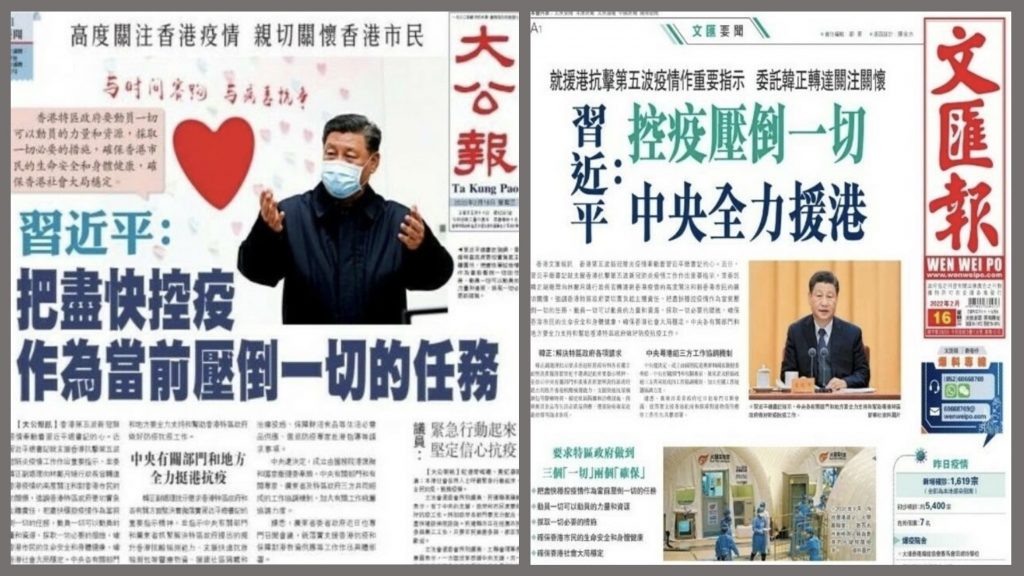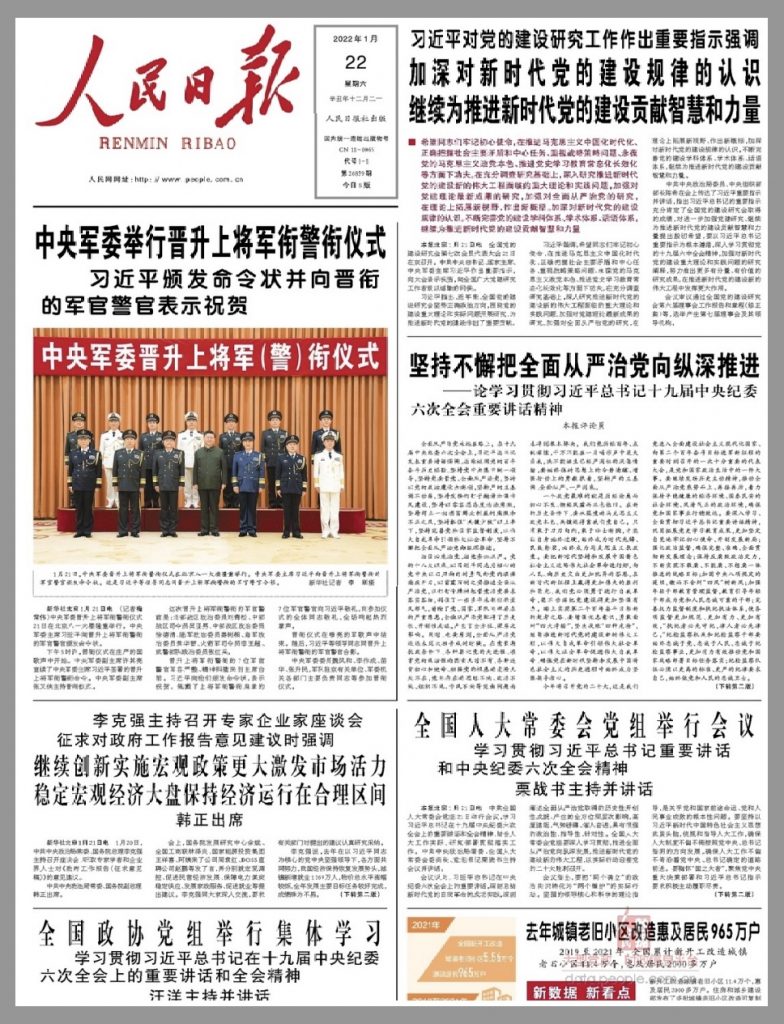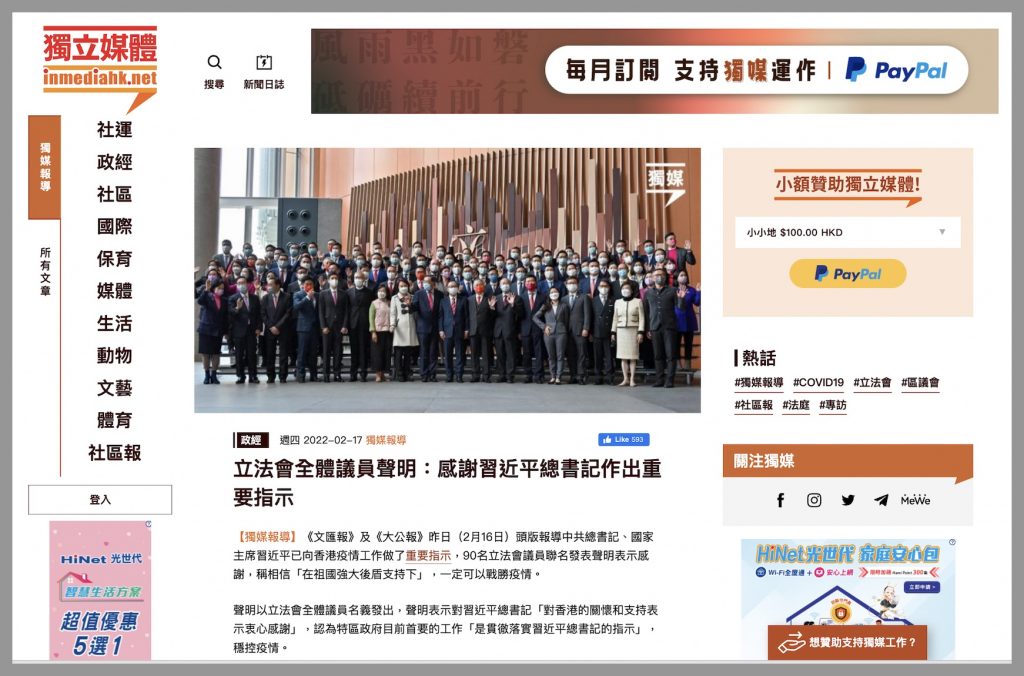
Making headlines on Hong Kong yesterday was news that Xi Jinping had issued a directive to the government in the special administration region urging officials to bring the worsening Covid-19 outbreak there under control. According to front-page reports in both the Ta Kung Pao and Wen Wei Po, state-owned newspapers operated under the Chinese government’s Central Liaison Office, Xi urged the Hong Kong government to take “all necessary measures” to contain the territory’s Omicron-fueled outbreak.
In characterizing the directive from Xi, reportedly conveyed to Hong Kong Chief Executive Carrie Lam by Politburo Standing Committee member Han Zheng (韩正), both papers used the phrase “important instructions,” or zhongyao zhishi (重要指示). Han then urged the Hong Kong government to “implement the spirit” of Xi’s “important instructions,” and he directed Central Government agencies and authorities in neighboring Guangdong to assist the SAR in any way possible, such as through medical supplies and increased testing capacity.
But the odd question about these “important instructions”: Why have they not appeared at all in the mainland Chinese media?

As we explain in our CMP Dictionary, the phrase “important instructions” in fact denotes a specific decision-making act at the highest levels of the Chinese Communist Party. In the Xi Jinping era, that act has become even more specific than in the past, limited to Xi Jinping as the CCP’s “core” and unquestioned leader. While in the Hu Jintao era, “important instructions” could be issued not just by Hu as the top leader, but also by Premier Wen Jiabao and other members of the Politburo Standing Committee, the phrase is now exclusive to Xi.
Given the preeminent status of Xi Jinping within official CCP discourse, we would generally expect anything bearing the label “important instructions” to have pride of place on the front page of the official People’s Daily as well as top provincial CCP papers. But this is not what happened with the directive on Hong Kong. Instead, it has been entirely absent from the mainland media.
For the last headline appearance of “important instructions” from Xi we have to go back nearly a month to January 22, when Xi addressed the issue of “Party construction” (党的建设), referring to the strengthening of the CCP and its work and theories. In this case, news of Xi’s “important instructions” appeared exactly where we would expect it to in the People’s Daily – at the upper right-hand corner of the front page, just beside the masthead.

Why would China’s leadership decide to splash Xi Jinping’s most recent “important instructions” across the front pages of local state-run newspapers in Hong Kong, but keep them off all newspaper pages inside China. This is a tough question to answer.
In an interview with Radio France Internationale (RFI), current affairs commentator Johnny Lau (劉銳紹) speculated that the high-profile reporting of Xi Jinping’s directive by the Hong Kong media was meant to underscore Xi’s overarching control and establish his prestige ahead of the 20th National Congress to be held in the fall. This reasoning, however, does not explain why Xi’s power in this case would not be telegraphed in the same way inside the PRC.
What we can be sure of is that the Chinese government will play an even more active role in tackling the current outbreak in Hong Kong, and that this is likely to be viewed with a measure of unease by many in Hong Kong, who fear further erosion of autonomy. In all likelihood, we will continue to witness also a blurring of lines in the Hong Kong media, and a progressive recasting of their role.
Today’s homepage at InMedia, the oldest digital news outlet in Chinese still operating after the closure this year of both Citizen News and Stand News, may offer a glimpse of things to come. The site’s top headline, bold beneath a group photo of Hong Kong’s Legislative Council, reads: “Statement From All Legco Members: Thanks to General Secretary Xi for Making His Important Instructions.”





















